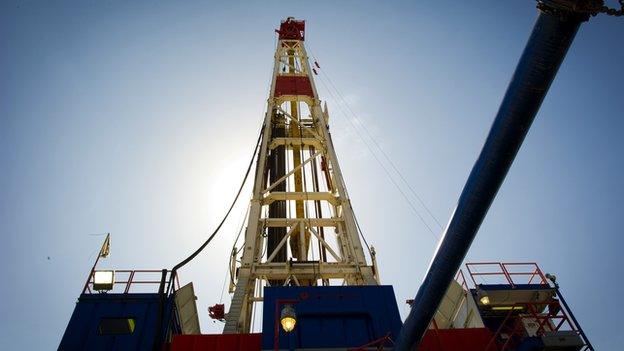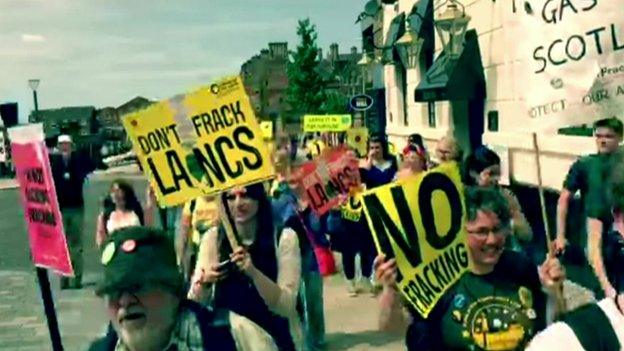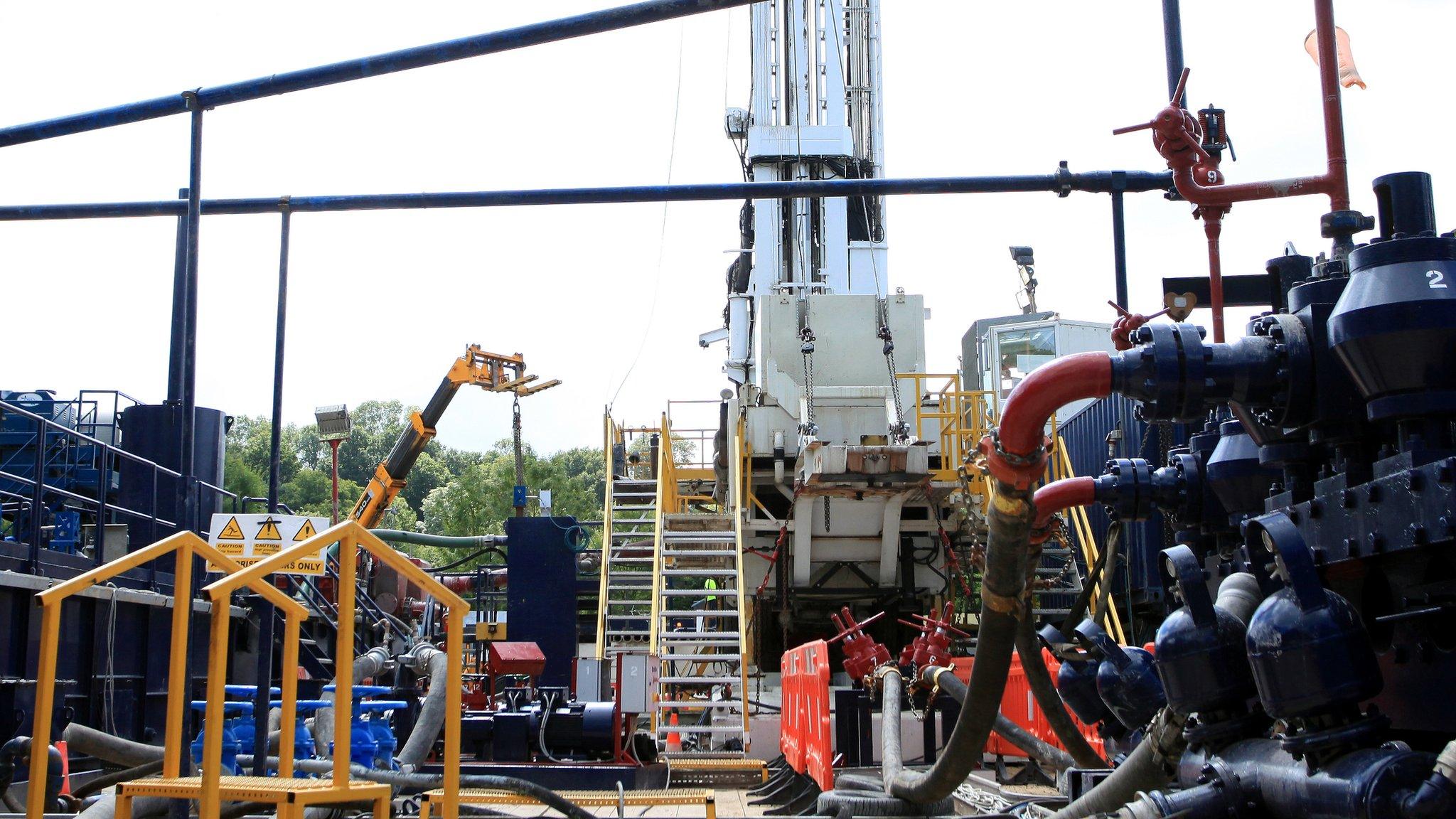Fracking impact on CO2 cuts in US emissions 'a myth'
- Published

New research suggests that the impact of shale gas on curbing US carbon emissions has been overstated.
Politicians have argued that the US was able to significantly reduce CO2 between 2007 and 2013 because of fracking.
But scientists now believe an 11% cut in emissions in that period was chiefly due to economic recession.
The study suggests that the future impacts of shale as a way of curbing carbon may be limited.
Between 2007 and 2013 US emissions of carbon dioxide, mainly from the burning of fossil fuels, declined significantly.
By 2012, levels of CO2 from the US were running 5% below the total for 1997.
In the same period, a boom in the production of shale gas through the use of hydraulic fracturing technology saw a rapid switch from coal fired electricity production to gas burning.
Coal dropped from producing half of US electricity in 2007 to 37% by 2012.
Scientists and commentators immediately linked the curb on emissions to shale gas.
Even official government documents, external such as the US Third National Climate Assessment highlighted the move as being "largely due to shift from coal to less CO2-intensive natural gas."
But according to this new study, the shift played a minor role. The key to the reduction in emissions in this period was consumption.
"We couldn't see that gas was the real driver," lead author Prof Klaus Hubacek from the University of Maryland told BBC News.
"What we can show is that the main driver has been the level of consumption, GDP per capita. The decrease in this was the main driver. Gas was a driver but a very minor one."
The biggest drop in emissions took place when the recession was really beginning to bite between 2007 and 2009 when CO2 fell by almost 10%, due to a sharp decline in the volume of consumed goods.
From 2009 to 2013 the US economy started to recover and consumption began to rise, also impacted by a growing population.
But the authors point out that although shale gas begins to have a greater impact on the fuel mix in this latter period, changes in the amount of energy used to produce goods and services still has a far greater effect on the overall picture.
"It is a myth - in terms of the economics of the whole system, natural gas is also competing with renewables," says Prof Hubacek.
"The other question is what happens with the coal that the gas displaces - if you take it out of the ground, it's going to be used somewhere. The whole gas story doesn't make a difference."
The researchers argue that it is a mistake to think that shale gas can be an easy path to lower emissions, as many governments around the world have argued.
They point to the experience of the US showing that exports of coal to China grew rapidly as US power producers shifted to gas.
In China, the coal was likely used in less efficient burners than in the States, turning what on the surface looks like an emissions cut into an overall emissions rise for the world.
If we are serious about tackling climate change, the authors say, we need to find more effective solutions that deal with the root causes.
"We need to rethink the amount of stuff that people are consuming - one could also tax the dirty stuff, one could think of a tax on more polluting items, driven by environmental reasoning," says Prof Hubacek.
"If you want a low carbon future, then why don't you focus on low carbon stuff rather than investing in the wrong alternative which is in my mind, gas."
The research has been published, external in the journal, Nature Communications.
Follow Matt on Twitter @mattmcgrathbbc, external
- Published29 June 2015

- Published15 July 2015
